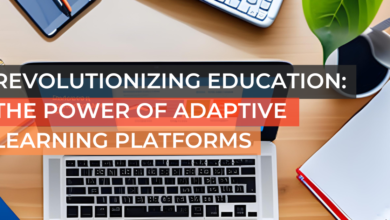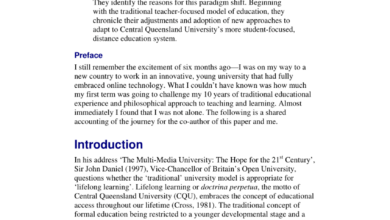Online Degree Options: A Comprehensive Guide to Distance Learning and Its Benefits
In the evolving landscape of higher education, online degree options have emerged as a transformative force, offering boundless opportunities for individuals seeking to advance their careers or pursue their academic passions.
This comprehensive guide delves into the intricacies of online degree programs, highlighting their strengths and weaknesses, providing a detailed analysis of their features, and presenting a comprehensive table outlining various online degree options.
Contents
- 1 Understanding Online Degree Options
- 2 Comparing Online and Traditional Degree Programs
- 3 Exploring the Features of Online Degree Programs
- 4 A Comprehensive Table of Online Degree Options
- 5 Frequently Asked Questions (FAQs)
- 5.1 Q1. Are online degrees as valuable as traditional degrees?
- 5.2 Q2. How do I choose the right online degree program?
- 5.3 Q3. What technical requirements are necessary for online learning?
- 5.4 Q4. How much interaction is there with instructors and classmates in online programs?
- 5.5 Q5. Can I complete an online degree program while working?
- 5.6 Q6. How do I apply for an online degree program?
- 5.7 Q7. Are there financial aid options available for online degree programs?
- 5.8 Q8. How long does it take to complete an online degree program?
- 5.9 Q9. What is the cost of an online degree program?
- 5.10 Q10. Are online degree programs accredited?
- 5.11 Q11. How do I transfer credits from other institutions to an online degree program?
- 5.12 Q12. Can I complete an online degree program from anywhere in the world?
- 5.13 Q13. Are there any prerequisites for online degree programs?
- 6 Conclusion
- 7 Closing Words
Understanding Online Degree Options
Definition and Scope
Online degree programs are academic programs delivered primarily or entirely through online platforms, allowing students to complete their coursework and earn a degree from the comfort of their own homes.
These programs offer a wide range of options, including undergraduate degrees, graduate degrees, and certificate programs, across diverse academic disciplines.
Benefits and Advantages
Online degree options offer numerous advantages that have made them increasingly popular among students.
These benefits include flexibility, accessibility, cost-effectiveness, and the ability to learn at one’s own pace.
Online students can balance their studies with work, family, and other commitments, while still accessing high-quality education from reputable institutions.
Challenges and Weaknesses
Despite their advantages, online degree options also present certain challenges that students should be aware of.
These challenges include the lack of face-to-face interaction, the need for self-discipline and time management, and potential technical difficulties.
Students considering online programs should carefully assess their individual needs and circumstances to determine if this mode of learning is a suitable fit for them.
Comparing Online and Traditional Degree Programs
Academic Rigor and Recognition
Online degree programs are often held to the same academic standards as traditional on-campus programs, with students required to meet rigorous requirements and demonstrate mastery of the subject matter.
Degrees earned through online programs are typically recognized by employers and other institutions, providing graduates with the same opportunities for career advancement and further education as traditional degree holders.
Flexibility and Accessibility
One of the primary advantages of online degree programs is their flexibility, allowing students to learn at their own pace and on their own schedule.
This flexibility is particularly appealing to working professionals, students with family obligations, and individuals living in remote areas who may not have access to traditional on-campus programs.
Student Support and Resources
Online degree programs vary in the level of student support and resources they provide.
Some programs offer comprehensive support, including academic advising, technical assistance, and career counseling.
Students should carefully research the support services available at different institutions to ensure they meet their individual needs.
Exploring the Features of Online Degree Programs
Course Delivery Formats
Online degree programs use various course delivery formats, including asynchronous and synchronous learning.
Asynchronous learning allows students to access course materials and complete assignments on their own schedule, while synchronous learning involves live video conferencing and virtual classroom sessions.
Students should consider their preferences and learning styles when choosing a course delivery format.
Assessment Methods
Online degree programs utilize various assessment methods to evaluate student learning.
These methods include online quizzes and exams, discussion board participation, written assignments, and presentations.
Students should familiarize themselves with the assessment methods used in the programs they are considering to ensure they are comfortable with the expectations.
Technical Requirements
Online degree programs require students to have access to reliable internet connectivity and the necessary hardware and software.
Some programs may also require specialized software or online tools for course activities and assessments.
Students should verify the technical requirements of the programs they are considering to ensure they have the necessary resources.
A Comprehensive Table of Online Degree Options
| Degree Level | Program Type | Duration | Average Cost |
|---|---|---|---|
| Undergraduate | Associate’s | 2 years | $10,000-$20,000 |
| Undergraduate | Bachelor’s | 4 years | $20,000-$40,000 |
| Graduate | Master’s | 1-2 years | $30,000-$50,000 |
| Graduate | Doctorate | 4-7 years | $50,000-$100,000 |
| Non-Degree | Certificate | 6-12 months | $5,000-$15,000 |
Frequently Asked Questions (FAQs)
Q1. Are online degrees as valuable as traditional degrees?
Yes, online degrees are typically held to the same academic standards as traditional degrees and are recognized by employers and other institutions.
Q2. How do I choose the right online degree program?
Consider your academic goals, career aspirations, and learning style when choosing an online degree program.
Q3. What technical requirements are necessary for online learning?
Reliable internet connectivity, a computer, and the necessary software are typically required for online learning.
Q4. How much interaction is there with instructors and classmates in online programs?
The level of interaction varies depending on the program and course format, but many online programs offer opportunities for communication and collaboration.
Q5. Can I complete an online degree program while working?
Yes, many online degree programs are designed for working professionals, offering flexible scheduling and part-time study options.
Q6. How do I apply for an online degree program?
The application process for online programs is typically similar to that of traditional programs, involving submitting transcripts, personal statements, and letters of recommendation.
Q7. Are there financial aid options available for online degree programs?
Yes, financial aid options, such as scholarships, grants, and loans, are often available to students enrolled in online degree programs.
Q8. How long does it take to complete an online degree program?
The duration of online degree programs varies depending on the degree level and program requirements.
Q9. What is the cost of an online degree program?
The cost of online degree programs varies depending on the institution, program type, and duration.
Q10. Are online degree programs accredited?
Yes, many online degree programs are accredited by reputable accrediting agencies.
Q11. How do I transfer credits from other institutions to an online degree program?
The process for transferring credits varies depending on the institution and program, but many online programs accept transfer credits from accredited institutions.
Q12. Can I complete an online degree program from anywhere in the world?
Yes, many online degree programs offer global accessibility, allowing students from anywhere in the world to enroll.
Q13. Are there any prerequisites for online degree programs?
Prerequisites may vary depending on the program, but many online degree programs require a high school diploma or equivalent.
Conclusion
Online degree options offer a transformative path to higher education, providing individuals with the flexibility, accessibility, and affordability to pursue their academic and career goals.
However, it is essential to carefully consider the strengths and weaknesses of online learning to ensure that this mode of education is a suitable fit for individual needs and circumstances.
By leveraging the information presented in this comprehensive guide, readers can make informed decisions about their educational journey, harness the power of online degree options, and unlock a world of possibilities.
Closing Words
As you embark on this exciting chapter of your educational journey, remember that learning is a lifelong endeavor.
Whether you choose to pursue an online degree or explore other educational paths, stay curious, embrace challenges, and never stop expanding your knowledge and skills.
The world of possibilities is vast, and with determination and a commitment to learning, you can achieve your educational and professional aspirations.









